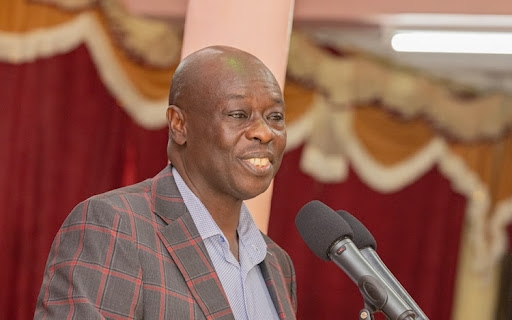President Ruto has to deal with surging opposition pressure to ease the cost of living, involve all stakeholders in reconstituting the electoral commission and reduce taxes on commodities, among other key grievances. There are more problems aggrieving the opposition, including the capture of the Legislature, the Judiciary and the Church by the Executive.
Yet the problem of increased cost of living is at the centre of this rivalry and will likely be the hottest issue given the fact that most households are affected. It is very easy to get hungry people involved in any effort to improve their lot.
This is a problem that could have been avoided by the Kenya Kwanza regime. In an economy that has been smarting from the negative effects of Covid-19 and the war between Russia and Ukraine, economic safeguards in the name of subsidies to preserve the purchasing power of individual citizens on basic commodities was the best of the short term strategies even as government invests on long term strategies like making available fertilisers and subsidised seeds to cushion individuals from the ravages of global economic meltdown.
It has therefore been irresponsible to suddenly and completely withdraw such subsidies by the Kenya Kwanza regime without taking cognisance of the possible negative effects of such a sudden withdrawal. Withdrawal of subsidies should have been staggered.
It is indeed ironic to suddenly withdraw subsidies on basic commodities used by the majority of households like flour, kerosene, fuel and sugar, among others, and then continue appealing for help from donors and the international community to support over 5 million Kenyans currently in need of relief food.
World over, the experience has been that one needs a number of years to effect a series of programmes in order to balance budgets. The sudden withdrawal of subsidies and cut down on already budgeted programmes in an attempt to balance budgets by the Kenya Kwanza regime is therefore voo doo economics which must be called out.
The uncertain rainfall resulting from extreme climate change effects means that even the expected harvests are uncertain. To suddenly withdraw subsidies and bank on future agriculture proceeds by investing in fertiliser and seed alone is unwise.
We can and should do both. Regulate subsidies, not withdraw them completely and suddenly, while investing in long-term economic interventions. This would address immediate household needs, thereby saving the political skin of the Kenya Kwanza regime. Or else, the hustlers are hungry, cannot afford basic needs and will lose nothing by going to the streets.
This is what President Bill Clinton did in the United States of America in 1995. Amidst the Republican wave engineered by House Speaker Newton Gingrich, which saw the Democrats lose the House majority in the midterm elections and with the Republicans' New Contract wave, Clinton gave a 10-year balancing the budget speech that addressed the immediate needs of households while espousing a long-term plan that would see him preside over the greatest economic recovery period in the Americas in decades.
This is what Ruto must do. Completely and suddenly withdrawing subsidies just to be seen to be reversing the economic policies of the previous regime while being insensitive to the immediate plight of the hustlers who rode him to power is politically and economically unwise. That Kenyans are flocking to Chinese Square to buy cheap goods should provide President Ruto with a vital lesson.
The Roman politician and philosopher Cicero once said, "Not to know what has been transacted in former times is to always be a child. If no use is made of the labours of past ages, the world must remain always in the infancy of knowledge."
Nowhere else is the observation more relevant than in the design of development policy, but nowhere is it more ignored. Though we have a wealth of historical experiences to draw upon, we do not bother to learn them, and unquestioningly accept the prevailing myth that today’s rich countries developed through free trade and free market policy.
The truth, however, is that all of today’s rich countries used nationalistic policies like tariffs, subsidies and restrictions on foreign investment to take off. Why try to reinvent the wheel?
Countries like Finland, Norway, Italy and Austria – which were all relatively backward at the end of the Second World War and saw the need for rapid industrial development – all used strategies similar to those used by France and Japan to promote their local industries.
These included directing the flow of bank credit to strategic industries and the provision of support for marketing and research and development to small and medium-sized firms in the locality in order to promote their infant industries.
Sudden and complete withdrawal of subsidies does the opposite, which is killing infant industries. Subsidies lower the cost of doing business in the infant industries while giving them the window to mature and stabilise and stand on their own. Only then can subsidies be withdrawn.
The argument for subsidies is that if the capability is not there, it does not matter what the incentives are. Subsidies are therefore incentives towards capabilities and cannot be suddenly and completely withdrawn if economic stability is to be achieved in the long term. Over to you Mr President.
Consultant on strategy, leadership and development. [email protected].










